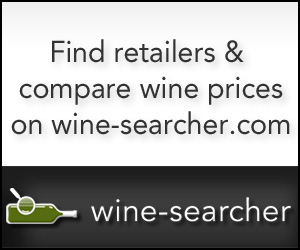|
Supreme wine decision
Earlier this week, the U.S. Supreme Court agreed to review the long-simmering question of wine shipment direct to consumers across state lines, an issue that puzzles wine lovers in most of the world, where ordering a bottle of wine from any legal source and having it shipped to your door is a simple matter. For those of us who live in one of the 25 U.S. states that restrict consumer choice by limiting access to alcoholic beverages sold by licensed, local retailers, however, it's anything but routine; and we'll be watching with interest as the Supreme Court takes on this topic. (Court-watchers say its decision may be a year away.) Let's take a quick look at this confusing issue today. The problem goes back to the 21st Amendment to the Constitution, which in 1933 repealed the short and not-so-noble national experiment with Prohibition that had made the sale of beverage alcohol illegal throughout the U.S., a policy that had yielded widespread defiance, increasing cynicism and a dramatic increase in organized crime. Despite its name, however, "Repeal" didn't exactly end Prohibition. It simply turned over responsibility for the "transportation" of alcoholic beverages to each individual state, not the federal government. Every state developed its own laws (and some would remain "dry" or mostly so for decades), but eventually most developed a so-called "three-tier" system through which commercial wine and other alcoholic beverages must pass from the producer or importer to a distributor, and then to a licensed retailer. Each participant got a taste of the profits, and consumers could buy only from the retailers. (A few states even went so far as to try to prevent citizens from purchasing wine while traveling and bringing it back home, prompting occasional "border wars" when [for example] Pennsylvania state troopers would stake out liquor stores in neighboring states, then follow miscreants back home, confiscating their wares when they reached the state line.) In relatively recent years, in a development inspired from wine-rich California, a number of states declared mutual "reciprocity" with other states that agreed to return the favor, permitting citizens in participating states to purchase wine directly from producers and other vendors in the other states. But when the arrival of the Internet and E-commerce suddenly made it easy for consumers to reach beyond their local merchants to buy wines they couldn't find at home, the wholesale wine and liquor industry, perceiving a threat to its profits, began to fight back. Using its well-heeled and entrenched lobby in the state capitals, wholesalers successfully persuaded a few states to crack down on interstate shipping by declaring such activity a felony; in other states they successfully fought off efforts to declare "reciprocity." Elsewhere, though, angry consumers and family-owned wineries sought relief in the courts, filing lawsuits challenging restrictive state laws as discriminatory. Three of those suits - one in New York State and two in Michigan - have brought the issue to the Supreme Court because different lower federal courts have reached conflicting conclusions. In arguments written by the wholesale lobby, some states assert that the current system is necessary because it "protects minors and ensures the collection of (alcohol) taxes;" but this is misdirection. The core issue is simple: Do protective state laws discriminate against out-of-state wine producers and stores by treating them disparately from wine producers and merchants within the state? This question, curiously, does not raise typical left vs. right issues but pits two conservative principles against each other: "Federalism," or the right of individual states to make decisions not reserved to the federal government by the Constitution, versus the Constitutional ban against discrimination in interstate commerce. Court-watchers speculate that the discrimination issues in the New York and Michigan cases are so clear-cut that it will be impossible for even the most Federalist court to ignore them. But others note that at least four of the sitting judges are such ardent Federalists that they may not be able to resist making a strong statement. It could be a close decision, and it could go either way.
WEB LINKS:
For the other side's spin, here's a press release from the wholesale industry lobby organization, the Wine & Spirits Wholesalers of America, Inc.:
The New York Times this week ran a short, four-paragraph editorial opinion in support of consumer choice. I thought it did an exceptional job of wrapping up a complicated issue in a concise statement:
Finally, if you'd like to get involved, here's a link to an active consumer group, Free The Grapes:
TALK ABOUT WINE ONLINE If you prefer to comment privately, feel free to send me E-mail at wine@wineloverspage.com. I'll respond personally to the extent that time and volume permit.
SUBSCRIBE: Administrivia To subscribe or unsubscribe from The 30 Second Wine Advisor, change your E-mail address, or for any other administrative matters, please use the individualized hotlink found at the end of your E-mail edition. If this is not practical, contact me by E-mail at wine@wineloverspage.com, including the exact E-mail address that you used when you subscribed, so I can find your record. We do not use our E-mail list for any other purpose and will never give or sell your name or E-mail address to anyone. I welcome feedback, suggestions, and ideas for future columns. To contact me, please send E-mail to wine@wineloverspage.com All the wine-tasting reports posted here are consumer-oriented. In order to maintain objectivity and avoid conflicts of interest, I purchase all the wines I rate at my own expense in retail stores and accept no samples, gifts or other gratuities from the wine industry.
Friday, June 4, 2004 |




